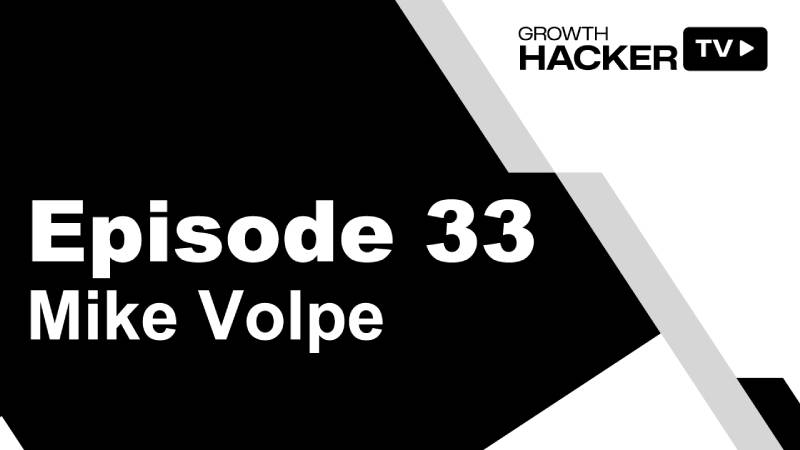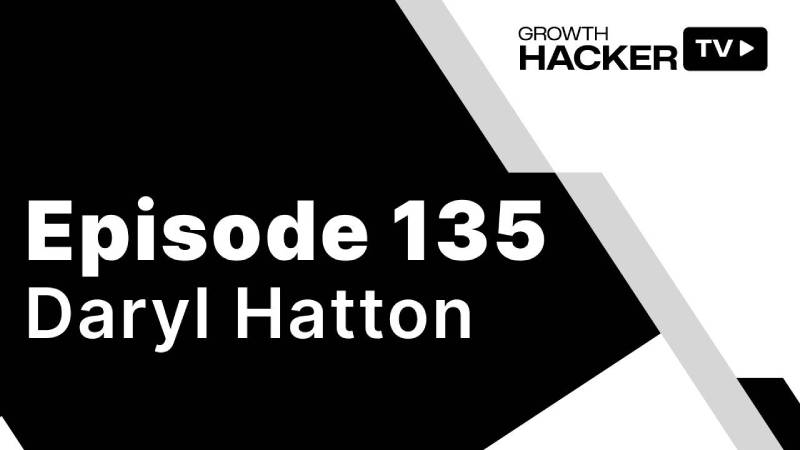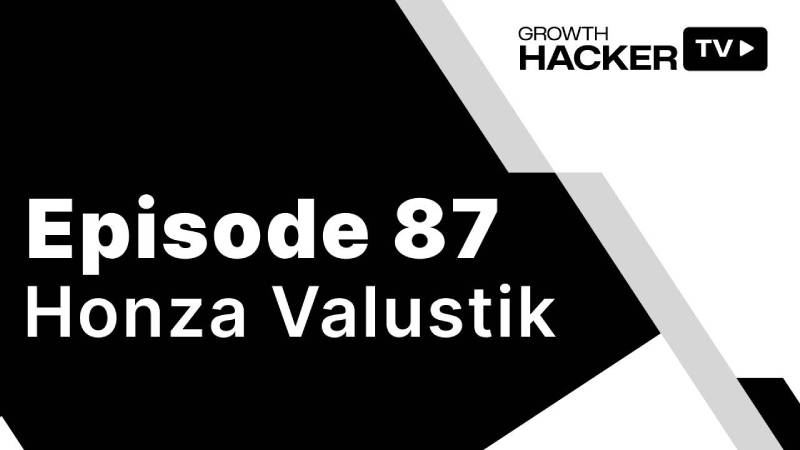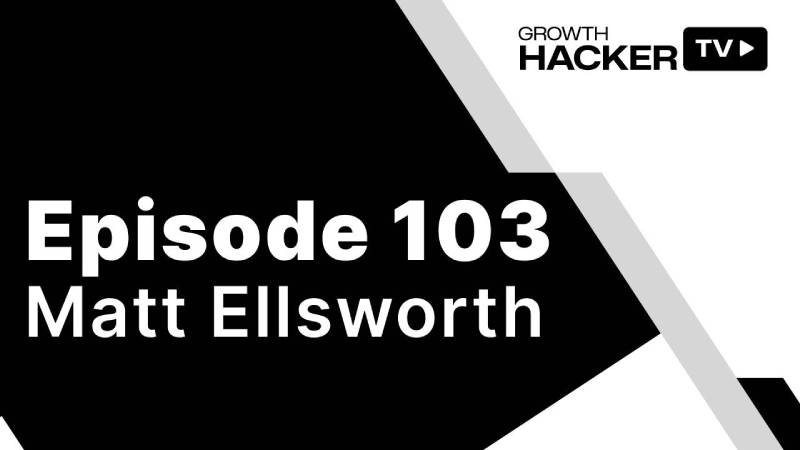Kevin Hartz is Co-Founder & CEO of Eventbrite, a company that enables event creation, promotion, and ticket sales. Kevin was previously Co-Founder and CEO of Xoom Corporation, an international money transfer company, servicing more than 30 countries worldwide.
TOPIC KEVIN HARTZ COVERS
→ What is Eventbrite
→ The bootstrap to learn that long tail market
→ What is the most responsible for that kind of growth
→ What he learned about the free account that’s helping to monetize those users
→ What has been most surprising about the growth of Eventbrite
→ Some investments that he made to the audience have heard
→ How important has learning from others been in his career
→ His advice to find himself giving to startups
→ The best advice he can give to anyone trying to grow a startup
→ And a whole lot more
LINKS & RESOURCES
WATCH THE INTERVIEW
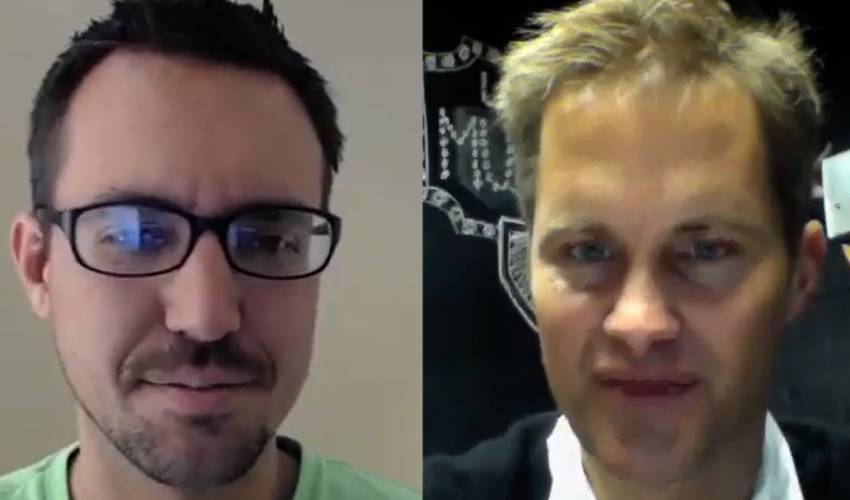
READ THE TRANSCRIPTION
Bronson: Welcome to another episode of Growth Hacker TV. I’m Bronson Taylor and today I have Kevin Hart’s with us. Kevin, thank you so much for coming on the program.
Kevin: Thank you, Bronson. Great to be here.
Bronson: Absolutely. Now, Kevin, you are the CEO and co-founder of Eventbrite, a little company that a few people have heard of. But tell us, in case people don’t know, what is the Eventbrite?
Kevin: Well, very simply, we’re getting company. And, you know, I think when we think of ticketing and we think of the big concerts with Justin Bieber or Lady Gaga or huge sporting events, professional football or baseball. But we’ve actually provided ticketing to every event under the sun. Some refer to it as the long tail of ticketing, and we provide ticketing for all these different categories that range from conference classes to music to you name it.
Bronson: Yeah, you mention the word long tail there, and I noticed that online previously stated that you didn’t really know the potential of Eventbrite at first because you didn’t know how successful these long term, these long tail events would actually be if they would actually use something like Eventbrite. And you said that you had to bootstrap to learn the market. Explain that to us. What do you mean that you had a bootstrap to learn that long tail market?
Kevin: By bootstrapping. What we did is that we we weren’t sure exactly how large the market really was. We knew that there is something very interesting in that we we didn’t have we couldn’t put an exact market size or TAM total addressable market on it. So we just started working with customers on making a great product for conferences and concerts and and what we saw is that there really is a massive opportunity that it’s scalable to do small and large events that it scales internationally. And, and here we are today. Today will process dollars in gross ticket sales and growing very fast.
Bronson: So you said that you guys will be doing over $1,000,000,000 in ticket sales in 2013. What do you think is most responsible for that kind of growth? Because that’s very different than where you guys were at in those bootstrapping days where you’re working one on one with these small, you know, long tail events.
Kevin: Well, we spent a lot of time really getting the product market fit correctly. And that was what that value was early on is is really understanding the customer. But but we’ve really worked on a number of different growth vectors, growth directions. And one of the major pieces we don’t really pay for our acquisition, we don’t spend huge amounts of money on marketing and so on. Well, you as we have a free service and that free service helps spread the word of Eventbrite. So organizers publish events, people sign up for them and they get post-event by the brand. And in turn, that drives awareness and actually paid sellers on our platform.
Bronson: Gotcha. Now, so you basically have a freemium model and you know, freemium was really popular a few years back. And then people started to realize recently it’s really hard to get people to go from the free account to the paid account. But you guys seem to be able to do that. You’re making that jump. What have you learned about that free account that’s helping you to really monetize those users? Is there anything you guys have discovered or you’ve learned that have helped you with that?
Kevin: Well, if you if you look at Eventbrite as a marketplace for these live experiences and they’re buyers and sellers, there will always be some organizers, buyers that are used in free events that hold free events. And in our case, it’s really the it’s really the buyers or sorry, the sellers or the organizers. The buyers are the attendees. And the attendees will convert at the same rate to page sellers as as but buyers are attendees going to a paid event. And, and we actually have more free hours on our service. So there’s no need or there’s the path upgrades from an organizer that holds free events to paid events, you know, is a is a nice one. But it’s really the fact that we’re exposing the brand to millions and millions, tens of millions of people around the world as attendees that they first hear about the brand and convert to sellers.
Bronson: I got you. So freemium is really a smokescreen. That’s not really the heart of it. The heart of it is kind of a Hotmail hack where, you know, you put your link at the bottom of the email and then everyone’s who sends an email from Hotmail early on, learns about Hotmail, kind of claims that you guys, you have a free event that’s basically like, Hey, for free, we’ll let you market for us. And then they go and market for you.
Kevin: Well, that’s right. And, you know, the wonderful thing that in why it’s great for both sides is that because we’re not spending all this money on acquisition, we can invest that in a great product. In customer service, we have like 24/7 customer service. People answer the phones when you call. You know, basically what we want to do is build a ticketing company that does everything opposite of what you’d typically expect from a ticketing, great product and innovation and great service. And so when you add those elements and we can subsidize that because we’re not spending all that money on direct marketing, you know, we spend it on the customer experience and that’s wonderful.
Bronson: Yeah. Have you guys dabbled in direct marketing and buying ads, pay per click, that kind of stuff? Have you tried it and just found it doesn’t work or it works just not as well as people marketing for you through their own events. What have you found out with that kind of stuff?
Kevin: It’s. It’s. It’s not.
Bronson: Oh, I have an eyelash in there. Hey, Kevin. I lost you in there.
Kevin: I got that. I saw you freeze out.
Bronson: Okay. The last thing I heard. I ask you the question. What have you learned about that kind of stuff? Proclaim direct marketing, and then you cut off as soon as I stopped.
Kevin: So we the vast majority of our customers come from, and that is these sellers but also re-organise the event organizers come and free services. We do do some direct spend in in certain categories from Facebook ads into you name it but it’s it’s a very small amount when we do spend in those categories because to gain most of our customers from free sources we can actually spend more in average out that’s yeah. So you had traditional competitors trying it against us. You know, we can essentially drive up the price for for them and it’s almost a more competitive foil. Anything else?
Bronson: Yeah, I’ve heard it said on this program before that buying ads is really a business model competition. Whoever can spend the most to acquire the customer because of the lifetime value of the customer gets to run up the ad and nobody can really compete against them on these platforms. And it seems like because you guys are so successful at this other kind of advertising that you can dominate pay per click when you want to play in that arena. So that’s that’s a cool thing. What has been most surprising to you about the growth of Eventbrite? You were there from the very beginning until now. You’ve seen kind of every curve up and down and what it’s done, you’ve seen the drivers of traffic. What’s been surprising about it to you?
Kevin: You know, most piracy is actually the retention is it’s mind boggling when you think of these kind of things and or being very cynical. But when you look at the cohort retention, meaning customers that they came on salaries of paid events, even free events, they’ve come on board with us. The amount of revenue they generate over time, our cohorts actually increase and that is all again attributable to those two things. Great product, heavy, heavy investment and great technologists engineering it and also great service with that comes down to as we track very carefully our Net Promoter Score. If you’re not the readers, our viewers are familiar with Google and there’s a lot of material written on the Net Promoter Score that we really try to delight our customers to write that word of mouth and in that drive as heavy retention as well as continues to subsidize our acquisition.
Bronson: Yeah. So you found that the best way to increase the Net Promoter score is just do great technology and great support. Are those kind of two main things? Is there anything else you know around there? Maybe not as important, but still something you guys do to help that Net Promoter Score?
Kevin: But you know that’s that’s is is simple is it is is you want to wow the customers you want to make the service just as simple to use and we talk about technology innovation as, you know, just the fact that it’s a self-service application that we can provide a lot of data to our customers. And, you know, along with that product innovation comes the fact that we are sending more customers, we’re selling more tickets for our customers because we have all these different channels of from Facebook to organic rhythmic search to different other mechanisms of of putting more people in seats and driving more ticket sales. And at the end, that that is is the massive value that our sellers talk about. Yeah.
Bronson: Now looking back, you know, because hindsight’s 2020 and now you can look back at Eventbrite and where it was and where it is now. What do you wish you had known about growing a user base when you first started that you had to learn the hard way?
Kevin: Well, you know, I think we would have had more appreciation around the free events. But to be honest, this is just a business that takes many years to get into orbit. It’s you know, there are no hacks or, you know, the cyclicality of the market, the distribution of of customers. It it takes a long running start to get this business to scale. And and, you know, it feels really great now that that’s all behind us.
Bronson: Yeah, absolutely. If I could have it on that episode also, could you lower the volume? Just a couple points there because I got a little bit of feedback there, but there was one time I had it. Now, Kevin, you’re also an investor to many startups. Tell us about some of the investments that you’ve made that maybe our audience has heard of because you have a few of those.
Kevin: Well, you know, fortunately, in a bit of luck, there is like one of my first yeah, my first investments was PayPal back in the late nineties and that was really a team bet that was an investment in the super brains of Peter Thiel, who had it when I was an undergraduate, when he was a student and we were involved in student government in the next election and that was really a bet on that team. And that has been a signpost. A compass for my investing since then is to find that spectacular talent in problem solving ability.
Bronson: Yeah, you know, and PayPal is a good one when you look at talent. I mean, they have the PayPal Mafia third column that have come out of people and they all go and do their own thing. That’s, you know, just amazing. And some of the other consumer facing companies tell me if I’m wrong. Companies like Pinterest, you’re an investor in. Is that right?
Kevin: That’s right. I met Ben in the team very early on. Ben Silbermann is is an incredible one of those rare founders and really has a great product, esthetic and an esthetic for what he’s building and then really wants to have a massive impact is thinking about how to how can humans curate an index the web from a time where we’re coming from a time where machines have index the web as you know as in Google and is is building something very brand there. What most struck me was was just the passion of the users even at. When I got involved, it was it was a relatively small user base, but a very passionate user base. When you see that type of passion around a product time on site, these type of metrics, it’s a very great sign.
Bronson: Yeah, absolutely. You’re also an investor in Airbnb, is that right?
Kevin: That’s correct.
Bronson: Another another great story there. Let me ask you about kind of generally these investments in Evolve, you know, PayPal, Pinterest, Airbnb. I mean, this is a spectacular portfolio for a VC company, much less an individual. Kevin. Right. What do you look for? What indicators really get your attention? You mentioned the team before with PayPal. You’ve mentioned product with Pinterest. Are those the main two? Are there other ones you look for? How do you know when you look at a product that yeah, that has potential to grow?
Kevin: I look at a team and the per unit traction, so it doesn’t have to have millions of users, but it is like I, like I, I think it’s an indicator, a positive when a team can get a basic vibe. So Airbnb, for example, wasn’t in any type of scale, but they had very passionate gaps in hosts using the service. But really it harkens back to the team. I mean, I have to just emphasize that when you think about PayPal and the quality of people that came out of that, Bryan and Joe at Airbnb, Ben and Pinterest people into Trulia know meeting these entrepreneurs are people that I learned from. So really my investment thesis is to learn. And when I’m struck by an entrepreneur that gives me insights that I didn’t have before, that really opens my perspective. That’s what gets me most excited and it happens to translate into a good investment thesis as well.
Bronson: Yeah. So you talked about some of the positive aspects that draw you to a company and talk about some of the red flags, maybe because, you know, in the Internet space, there’s always new startups. They get a lot of hype and some people invest and some people know, let’s pass. There’s something about that that just doesn’t ring. Right. And you look at your portfolio and you don’t have a lot of those, but you have a lot. The ones that worked were the red flags were the things that you look at and say, I know there’s hype around it, but because of X, Y and Z, I’m going to pass on this one.
Kevin: Well, I’ve certainly had plenty of challenges in maybe the capital investments stand out more than the good ones. But yeah, generally it’s when I like investing in, in areas that feel uncomfortable for for most investors that that are kind of outside of of of the norm even, you know, Zoom, a company founded before Eventbrite. It was very odd and unusual to see, you know, there is a very negative impression among investors that immigrants would be able to get online and money. It was, you know, almost all of this prejudiced belief. And and so I you know, I like entrepreneurs that are doing things, are very contrarian that are against the grain and versus kind of following the crowd. So that’s a that’s a key aspect of it’s yet another similar deal to the many others we’ve seen. It’s an easy pass for me.
Bronson: Yeah, that’s right. Now you’re also a mentor to many startups. You’re an investor, but you’re also a mentor. You teach, you educate, you know, you speak on these things. And before you’ve spoken about the importance of learning from mentors, the importance of role models, the importance to learn from other entrepreneurs. And you already mentioned earlier, one of the reasons you invest in certain people is because you’re learning from them and their expertize. How important has learning from others been in your career? Has it been pivotal or just the icing on the cake?
Kevin: It’s really been pivotal. I just had a conversation now. An entrepreneur from Moscow was out over Eventbrite and he was lamenting the challenge of being in an area where he doesn’t have the mentorship. And I think about just the interactions with different entrepreneurs I’ve had in the last week and will have in the next week. You know, it’s incredibly important. I think of it as, you know, I think of the open source analogy is that we’ve been concentrated here in the valley. It’s we’re able to, you know, have all these these great companies around us and great entrepreneurs. And and I really learn of I sit on the board of a company called Lookout, which is mobile security company, the founder and CEO, John Herring. It’s an astounding, a great entrepreneur. And I learned so much about the Android market in the worldwide Android market through him, you know, as an example or a Jeremy Stoppelman down the street at Yelp gives a lot of insights that have helped me. John Coons, our CEO over at Zoom. You know, all these, you know, kind of daily, weekly interactions with entrepreneurs are key. And the open source analogy is simply that just as we open source software to help grow our businesses, as we open source our our knowledge here and and share different best practices. And that’s been a real key aspect for Eventbrite.
Bronson: Yeah. Now on the other side of the table, when you’re giving advice because you give a lot of advice also specifically about growth, what advice do you find yourself giving to startups? Kind of over and over, the ones that you mentor are the ones you invest in. Is there anything that you find yourself repeating to them about growth?
Kevin: You know, I think an important thematic notice that growth hacking is very important. But you’ve got to have great product along with it. You know, one must be careful not to overindex on just focusing on growth for for growth sake. You’ve got to have a product that people really love. So we’ve gone through phases where you see entrepreneurs spending too much time building in virality versus building a product people love. And it’s a combination of the two. I think Facebook is the most classic example of a wonderful, amazing product with wonderful, amazing growth engineering built into it.
Bronson: Yeah, absolutely. You know, one way I’ve heard it said before is, you know, when you focus on virality too much, you’re just marketing how bad your product is if your product is not ready to sustain the growth. Now, I’ve also heard you say before that you must allow your customers to lead. And I think that goes back to earlier when you’re talking about really testing out the long tail and that one on one interaction you had with those customers. But what do you mean? That you must allow the customers to lead? Because everything you’ve said so far has been very product centric. So how do you let the the the customers really lead the product? What do you do?
Kevin: Well, it’s it’s more of looking for patterns. You know, I think a classic example was that people went through a few iterations before becoming people. And when people found its its grand market, which was in its first vector of growth inside the eBay marketplace, it was almost by accident. They saw that its eBay sellers started to incorporate people and never anticipated having this. EBay was using paper checks. You know, the marketplace buyers and sellers were into paper checks. And so they observed this this phenomenon and built features and functionality to encourage that that growth and adoption business took off from there. Similarly, we’re always looking for what our customers are doing on the leading edge to build the business. For example, back in 2008, we started to see in our Google Analytics that more and more of our buyers or event attendees were coming from Facebook, and we looked at that behavior. It was actually attendees cutting and pasting the Eventbrite URL ticket into their newsfeed. So once we saw this behavior, it rotated, engineer it to to really embody it into a product as features and really it was in a space after that integrate with Facebook connect make the sharing easier. That’s a great example. Another is we to see more come from mobile and and into that area and now more was a major driver of our business.
Bronson: Yeah. Is there anything you’re seeing in analytics now that is that is causing you to put something on the roadmap that might be done in six months or a year? Because you see a trend that’s happening now.
Kevin: We’ve seen near these days. I don’t know if I’ve kind of formed a kind of a new thesis here. I think that know one is just we’re seeing mass adoption internationally. That is it’s very interesting in in markets that we would not have supported. So when you see organic, free and happening in in these interesting markets, it tells us that we should be really doubling or tripling, quadrupling down on our national growth.
Bronson: Yeah. And you mentioned to use Google Analytics, do you also use other analytics platforms to track kind of the metrics of your business? Or is that your home base?
Kevin: But we’ve diversified our metrics, but we’ve built a lot of in-house proprietary dashboards. And I mean, part of it is really building that massive data warehouse. You know, all our information is is stored in and assessed by all members of the team through different interfaces and different packaging. And so as we build a product, we also think about data structure in the information that we log from that, because our business is very much driven by analytics. And so that is very important point. But you know, the Explorer mobile or you know, you name it, we’ve got a lot of different packages in it combined with our own that are our stuff.
Bronson: Yeah. Do you have any, like, key metrics that you look at every morning on your phone when you wake up?
Kevin: Well, we get you know, we get every morning, Joe, number of resellers, a bus ticket sales, gross ticket sales. A region of revenue, of course, was one of the top level metrics. But then there’s you know, it really cascades down to somebody different areas. And the different teams really focus on answering areas like how do we drive more consumer discovery of events at the onset of the year? The team has its own set of metrics to to really watch fraudster or how to prevent a fraud, but not our customers. So we are a very extreme business.
Bronson: Yeah. How open are you with the metrics within your business? Because I know, you know, Eventbrite is larger than some of the companies we’ve had on. So how many employees do you actually have right now there?
Kevin: We’re we’re about 230 employees. We make our data available to the entire company. In a sense. We open source our data widely to the team because that’s where the team feels that empowerment and can find lots of patterns, gain lots of insights, build new products, know with that wealth of information. So it’s it’s really this open source notion of data inside her company and it’s very powerful.
Bronson: Yeah, that’s great. I think that’s one of the bits of insights take away from this interview is just having a lot of minds looking at the data is as important as having the data because people have to do stuff with these numbers once they’re collected and people have to get creative with them. And if you open it up to your whole team and you don’t keep them close to the chest, you’re going to get so many great ideas. They’re going to lead to two great things for the company. Kevin, this has been an awesome interview. Let me ask you one last question. It’s a high level question. You can take it any way you want. What’s the best advice you can give to anyone that’s trying to grow their startup?
Kevin: Really, the best advice I can give is don’t run out of cash. Cash is the leading cause of death and startups in it. It sounds funny or trite, but it’s the case is that make sure you get the balance sheet. Make sure you’re not assuming you’re raise money. Make sure that you know what to do at cash. You can stay alive long enough to figure out how to solve your business because you don’t want to be on a short fuze. So really enter cash well and assume it’s the last cash in and have a plan B. Your Plan C, your plan B pretty much always thinks that they’re going to go out and raise money for Sequoia Capital and everything’s going to be fine. But you to plan for you’ve got to prepare for the worst plan for the most. Yeah. Incredible.
Bronson: Thank you so much for coming on the program. It’s been an awesome interview and I know you’re busy, guys, so thanks for taking the time out your schedule.
Kevin: Thanks a lot. I really enjoyed the discussion.
Ready To Grow Your Startup?
Get the strategies, motivation, and in-depth interview with all the details every week!

